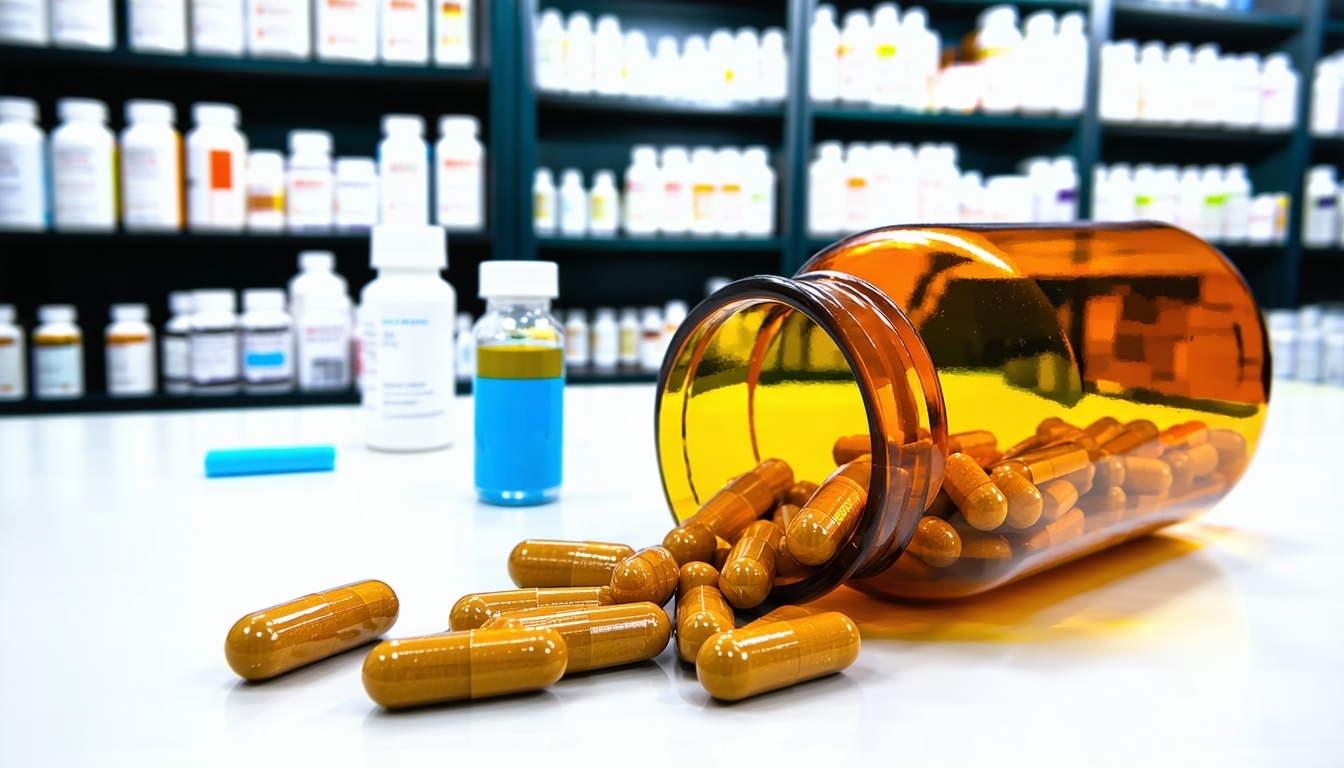Dietary supplements (DS) and herbal formulations (HF) have become essential components of health and wellness routines worldwide. Over the past two decades, usage has surged across demographics, driven by increasing interest in immune health, weight management, mental clarity, and the prevention of chronic diseases. The COVID-19 pandemic further accelerated demand, as supplements were aggressively marketed as immune-boosting and anti-inflammatory solutions.
While the growing demand signals a heightened interest in preventive health, it has also exposed consumers to new risks. One of the most alarming concerns is the adulteration of dietary supplements with synthetic pharmaceutical drugs. These substances, often undeclared and unapproved, are added to enhance perceived efficacy but can pose serious health risks.
The Growing Threat of Adulterated Supplements
The global dietary supplement market continues to expand, yet regulation varies widely by region. This opens the door for some manufacturers to intentionally include Active Pharmaceutical Ingredients (APIs) such as steroids, stimulants, and Phosphodiesterase type 5 (PDE-5) inhibitors without disclosing them on product labels.
This is particularly prevalent in supplements marketed for sexual enhancement, weight loss, and bodybuilding. Since the discovery of PDE-5 inhibitors for treating erectile dysfunction (ED), many over-the-counter ED supplements have been found to contain undeclared synthetic analogs of these drugs.
Such adulterants are not only illegal but also dangerous, especially for individuals with hypertension or heart disease. Approximately 60–70% of ED cases occur in patients with cardiovascular conditions, and PDE-5 inhibitors can interact adversely with medications for those diseases.
Worse yet, manufacturers often use advanced masking techniques that make detection extremely challenging. Consumers, unaware of these risks, may be misled by marketing claims and suffer adverse effects.
Complexity of the Global Supply Chain
Modern supplement supply chains are complex, often involving multiple intermediaries and international suppliers. This makes it difficult to trace the origin of ingredients or pinpoint where adulteration may have occurred. Without rigorous testing protocols in place, contaminated or adulterated products can reach consumers undetected.
As the supplement industry grows, so too does the sophistication of those seeking to circumvent regulations. Adulterators frequently develop new methods to disguise the presence of synthetic substances or mimic natural compounds.
Challenges in Detection
Analytical chemists face several significant challenges when testing dietary supplements:
- Complex Matrices: Supplements often contain multiple bioactive compounds, herbs, and excipients, making it difficult to isolate and detect synthetic adulterants.
- Evolving Adulterants: New molecules and masking agents require continuous updates to testing protocols.
- Speed vs. Sensitivity: Rapid screening methods may lack the sensitivity needed for accurate detection of trace contaminants.
- Limited Access: Not all labs have the advanced instrumentation required to perform sophisticated analyses.
Despite these challenges, advances in chemistry and analytical techniques are helping to close the gap.
Mérieux NutriSciences: Your Partner in Dietary Supplement Safety
At Mérieux NutriSciences, we are dedicated to ensuring the safety and quality of food, ingredients, and dietary supplements worldwide. Our global network of laboratories offers cutting-edge chemistry and analytical services specifically designed to identify and quantify adulterants in complex dietary supplement matrices.
Comprehensive Chemistry Capabilities:
- Identification of Synthetic Adulterants: We detect and quantify undeclared APIs, including anti-inflammatory agents, PDE-5 inhibitors, antidiabetics, sleep aids, and more.
- Trace Contaminant Analysis: Our labs can identify trace levels of pesticides, heavy metals (e.g., lead, arsenic, cadmium), and industrial contaminants.
- Stability and Shelf-Life Studies: Assess how formulations hold up over time under various storage conditions.
- Method Development & Validation: We develop and validate new analytical methods to meet evolving regulatory and market demands.
- Nutritional Panel Verification: Ensure the accuracy of label claims with quantitative nutrient analysis.
Advanced Techniques We Use:
- Mass Spectrometry (MS) using Liquid Chromatography (LC-MS) or Gas Chromatography (GC-MS), with options for tandem Mass Spectrometry (LC-MS/MS or GC-MS/MS): For detection and quantification of low-level synthetic APIs.
- High-Performance Liquid Chromatography (HPLC): For precision in separating complex mixtures.
- Gas Chromatography (GC): For volatile compound analysis.
- Inductively Coupled Plasma Mass Spectrometry (ICP-MS): For heavy metals testing.
- ELISA and PCR Testing: For microbial detection and allergen screening.
Our validated methods are tested for accuracy, precision, spike recovery, and uncertainty. Each method is tailored to the matrix and regulatory environment, ensuring reliable results across a wide range of product types.
Supporting Compliance and Global Market Access
We understand the evolving global regulatory landscape and offer tailored testing to help your brand stay compliant with:
- FDA regulations
- USP standards
- Codex Alimentarius guidelines
- European Food Safety Authority (EFSA) criteria
- Health Canada and other regional authorities
In addition to testing, we support companies in developing preventive control plans and quality management systems to reduce the risk of adulteration across the supply chain.
Why Trust Mérieux NutriSciences?
With decades of experience in food and supplement safety, Mérieux NutriSciences brings:
- Scientific Rigor: Trusted methodologies backed by a legacy of food safety expertise.
- Global Reach: Access to a worldwide network of laboratories and scientific teams.
- Tailored Solutions: Services customized to your product, region, and regulatory needs.
- Innovative Technologies: Constant investment in new tools to stay ahead of evolving threats.
We partner with manufacturers, retailers, and regulatory bodies to ensure safe, high-quality dietary supplements reach consumers.
Partner With Us to Strengthen Your Quality Control
The fight against dietary supplement adulteration is ongoing. As consumer demand rises and global supply chains evolve, the need for reliable testing and chemistry support becomes even more critical.
At Mérieux NutriSciences, we are committed to staying one step ahead of adulterators through scientific excellence, innovation, and a global approach to quality and safety.
Contact us today to learn how our Chemistry and Dietary Supplement services can support your supplement testing programs, help you comply with regulatory standards, and protect consumer health.
References
[1] Quarda, D. et al A Global Overview of Dietary Supplements: Regulation, Market Trends, Usage during the COVID-19 Pandemic, and Health Effects. Nutrients 2023, 15, 3320
[2] Charlie, L. Identification of Erectile Dysfunction Drugs in Dietary Supplements by Liquid Chromatography Ion Trap mass Spectrometry, Journal of Dietary Supplements 2021, 18(3), 261-277
